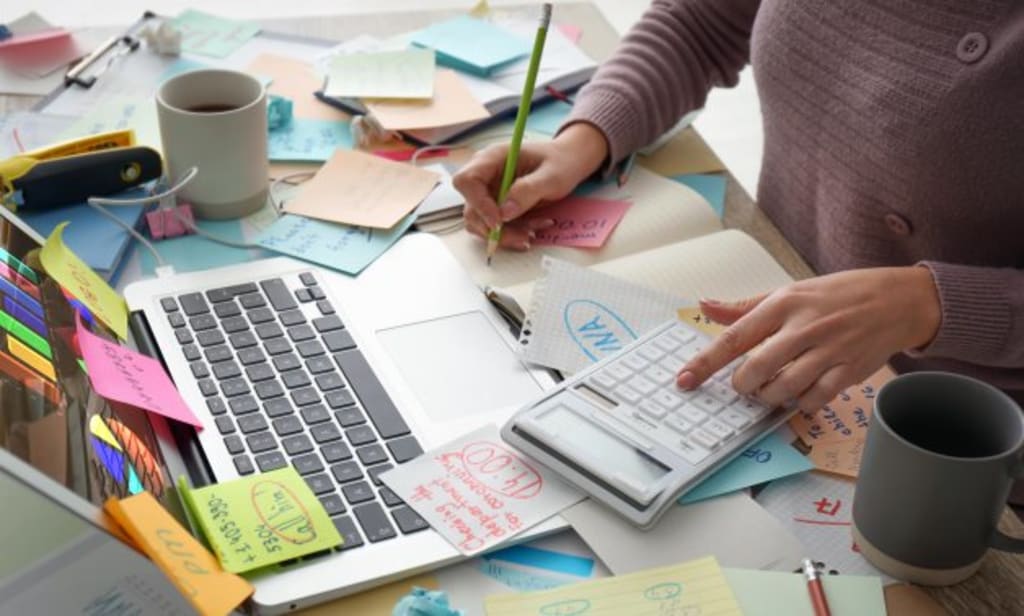
In today's culture, it's all about "getting that bread" and working as hard as you can in order to be successful. It's great to be productive, especially in a society that rewards hardworking behaviors in the name of building a better life on the individual level, and the family structure.
This is a double-edged sword in my opinion -- working hard is admirable and needed to make ends meet. However, what happens when we get so burnt out and we need time off? How do we deal with balancing what we need in order to give ourselves a mental and physical break from the hustle, yet set ourselves up for success when we do return back to work?
Here's 5 important tips to keep in mind when coming back into the work environment:
1. Re-establish your morning routine to help you feel more grounded and focused.
It's a small thing, but it's something I've started doing that became a good habit, eventually turning into a healthy routine: making my bed. Every morning, I take the small step of making the bed. Not only does it get me physically moving, but it also allows me to feel like I'm already being productive. I stopped doing this for a while when my depression was at an all-time high, and it made me tempted to get back into that messy bed and sleep all day. I had to fight against this by retraining my mind in more ways than one. Whatever your routine is (drinking water, going for a walk, journaling your thoughts, writing a to-do list, etc) re-establish it and go from there.
2. Mark off "focus time" on your calendar to catch up on work.
This one of course depends on what you do for work, but for those people who have office jobs that rely heavily on emails and whatnot, it's helpful to block off time to get caught up on your work. Personally, I have a block of time (usually at the end of my day or near the middle of my day) to answer emails and get to side projects I'm working on. Not only does this help me to "close out the day" with my tasks, but it also sets me up for success the next day so that I don't have anything lingering, which can sometimes add more stress when you have tasks to do for the day, plus the leftover ones from the day before. It might be worth looking into if this is something you can do on the clock.
3. Prioritize your "To-Do" list and remember you don't need to get everything done on your first day back.
It's important to prioritize what needs to be done first and foremost without stressing yourself out. I like to think of it as the "zoom in" approach. Instead of looking at the whole picture of what needs to be done, zoom in to the smaller tasks that need top priority first and go from there. I used to overwhelm myself with projects I knew needed to get done, and I'd spend too much time trying to figure out how to conquer the work as a whole, instead of breaking down each task one by one. Once I had a more granular view of the project at hand, I was able to prioritize and organize my work so much more efficiently.
4. Be kind to yourself and be sure to take breaks when you need them.
This is a biggie and I can't stress it enough! It's important that we take breaks -- not only for the sake of our mental health, but our physical health too. My job involves staring at a computer screen for 8 hours of the day; this means I'm sitting at my desk pretty much most of my workday. I've had to really challenge myself on getting up and taking my lunch away from my desk. I got into this awful habit in the past where I worked through my lunch, I'd sit at my desk and eat while I was still working -- not much of an actual break if you ask me! I did this to myself though, I thought I was more productive because I was working while eating. Points for multitasking right? However in the long run, this killed me. I wasn't truly taking the breaks and I physically suffered for this as well.
Even if it's just taking a 10 minute break to stretch or take a short walk outside, switching off from work mode is crucial in the long run and you won't feel as burnt out if you're giving your body and mind proper breaks throughout your workday.
5. Take things one step at a time.
We aren't meant to just work without having a personal life of course. We need to take things one step at a time. This is where being kind to yourself by taking breaks and prioritizing your tasks will be very useful when you return to work. You might be thinking that you need to automatically go into full work-mode because you've had time off, but having a healthy balance incorporated while you work is the key.
If there's one thing you takeaway from this, remember that the work will always be there -- but if you don't give yourself time, patience, and breaks, you might not be. Burnout can come on slowly or suddenly, so considering these tips, I hope that you can find some true work-life balance. It might take some time to put these things into practice, but you can make it happen for yourself. When you re-establish, focus, prioritize, take breaks, and take it all one step at a time, it will make a difference in your overall productivity. ~
About the Creator
Li-Li 📓
Just a modest woman living in a modern world, writing about what I know while embracing life’s simple pleasures, & finding solace in the rhythm of words and the unconditional love of my dog. ♥






Comments
There are no comments for this story
Be the first to respond and start the conversation.